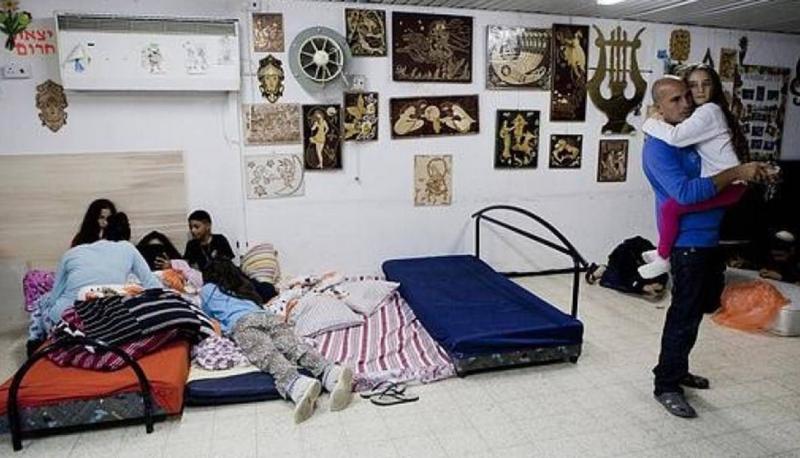Israelis are anxiously following daily reports about the Iranian threat to launch attacks in the coming days, possibly within hours, prompting many to book flights abroad until the situation stabilizes. The situation is particularly intense for residents of the coastal city of Haifa, where inhabitants fear the risk of heavy bombardment, potentially involving hundreds of missiles. Analysts and observers believe that Israelis have grown accustomed to navigating such challenging times, especially since the October 7 attack; they have taken numerous preventive measures, including building shelters even within their homes. Some have traveled abroad, but they remain apprehensive about escalation with no foreseeable end.
Israel is preparing for a "multi-front" attack that would severely strain its defense system, especially with Iran's commitment to "punish Israel," alongside its proxies gearing up for retaliatory operations following the assassination of Hamas political bureau chief Ismail Haniyeh in Tehran, and prominent Hezbollah leader Fouad Shukr in Beirut.
In response to these threats, Israeli authorities have enacted a series of rapid measures, primarily opening shelters in various parts of the country such as Tel Aviv, Sharon, Rosh HaAyin, and Kiryat Ono, and canceling some flights to and from Israel. Israeli media reported that over 100,000 Israelis are stranded abroad due to the flight cancellations.
As part of the preparatory measures, a training drill was conducted at the operations room of Magen David Adom, Israel's official medical service, which included a drill on blood donation in emergency situations, according to the newspaper "Maariv." The "Times of Israel" highlighted that the authorities took precautionary measures in anticipation of any potential escalation, such as evacuating industrial areas of hazardous materials.
However, the situation appears different in Haifa, which is likely to face missiles and drones if hostilities between Israel and Hezbollah escalate. Haifa, home to approximately 280,000 residents, features 110 well-maintained public shelters, in addition to hundreds of private shelters within residential buildings, with many residents building private shelters in their homes since the events of October 7.
With the onset of the latest wave of conflict, Israelis rushed to stockpile supplies and other emergency items; however, this rush seems to have recently diminished. Concurrently, the Israeli Home Front Command announced the completion of tests on a new system for sending location-based public warning messages, which relies on cellular broadcasting technology. This system will enable the transmission of emergency messages to multiple phone users in a specific area and will facilitate the reception of alerts in large-scale emergencies, such as missile launches against Israel.




